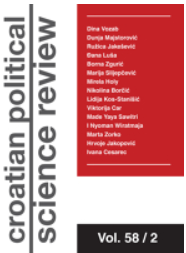Media Ecosystems and the Fact-Checking Movement: a Comparison of Trends in the EU and ASEAN
Media Ecosystems and the Fact-Checking Movement: a Comparison of Trends in the EU and ASEAN
Author(s): Nikolina Borčić, Mirela Holy, Marija SlijepčevićSubject(s): Media studies, EU-Approach / EU-Accession / EU-Development, ICT Information and Communications Technologies
Published by: Fakultet političkih znanosti u Zagrebu
Keywords: Fact-Checking; Fake News; Creative Economy; European Union; ASEAN;
Summary/Abstract: A creative economy is an economy where value is based on imaginative qualities rather than on the resources of land, labour and capital, and one of the most dynamic sectors of the global economy. The media industry is an important part of the creative economy and faces the most dynamic media ecosystems changes. One of the most interesting phenomena is the rising discipline of fact-checking. The discipline, which in four years (2014-2018) had a global growth of 239%, has developed to combat the adverse consequences of fake news and misinformation. It has brought interesting changes in media ecosystems and has enriched this part of the creative economy sector. This paper brings an overview of fact-checking trends in the European Union and South East Asia as these two regions show the fastest growth of the creative economy. Analysis answers the following research questions: What is the status of fact-checkers in those parts of the world? Which business models are dominant? How popular are they on social media? Which methodologies are used for fact-checking? What are their sources of financing? How often are the fact-checking organisation bilingual? Results show a significant discrepancy in trends in those two continents and emphasise fact-checking organisations’ contribution in the complex media ecosystems and further development. As media ownership impacts media content, research regarding media owners’ impact on fact-checking trends in the European Union and South East Asia is recommended.
Journal: Politička Misao
- Issue Year: LVIII/2021
- Issue No: 02
- Page Range: 92-112
- Page Count: 21
- Language: English

